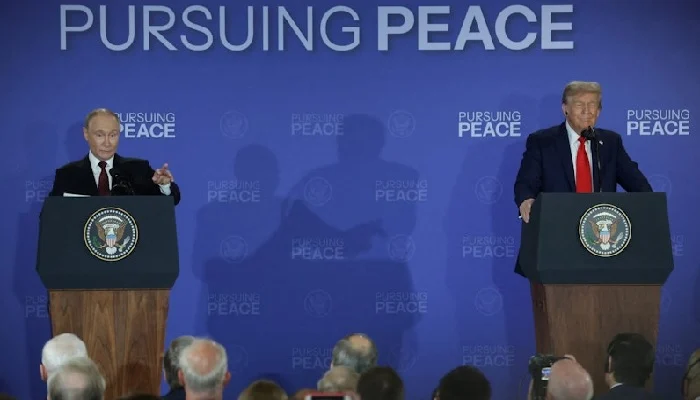World leaders shared mixed reactions on Saturday following the summit between U.S. President Donald Trump and Russian President Vladimir Putin, which failed to resolve Moscow’s ongoing war in Ukraine. Norwegian Foreign Minister Espen Barth Eide criticized Putin for repeating known justifications for the invasion, calling it an attempt to legitimize Russia’s illegal actions. He emphasized the need for increased pressure on Moscow to force accountability and warned against Putin’s efforts to divide Western allies. Eide expressed skepticism about immediate battlefield impacts, citing no change in Russia’s stance.
Czech Defence Minister Jana Cernochova, commenting on social media, stated that the summit brought no progress toward ending the war but exposed Putin’s true intentions. She accused the Russian leader of seeking to weaken Western unity and prolong the conflict to advance expansionist goals, regardless of human and material costs. Despite this, she noted the meeting’s value in revealing Putin’s mindset, stressing the importance of maintaining Western solidarity and continued support for Ukraine to prevent any one-sided peace deal favoring Russia.
Hungarian Foreign Minister Peter Szijjarto took a more optimistic view, praising the summit as a positive step for global security. He commended both leaders for engaging in high-level dialogue and reiterated that the war could only end through negotiations, not military means. Szijjarto emphasized Hungary’s long-standing stance favoring diplomacy, contrasting it with what he called the pro-war approach of Brussels and other European politicians.
The differing reactions highlight the ongoing divisions among Western nations on how to address the Ukraine conflict. While some leaders see dialogue as essential, others remain wary of Putin’s motives, insisting on sustained pressure and military support for Kyiv. The summit underscored the challenges in achieving a unified strategy to end the war.














